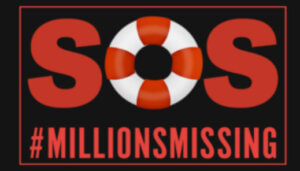Last Friday, I joined more than 1,000 protesters at a Stand Up for Science Rally in Madison, Wisconsin to tell our federal government to stop indiscriminately slashing funding for critical science, blocking grants that include words like “women,” removing public information and threatening to shut down the public comment process at the NIH, among other things. Thousands more joined rallies across the country.
I have lived as an ME/CFS “spoonie” for the past 20 years after I got a virus and never recovered. I’ve spent much of the past 10 years of my career advocating for ME/CFS research at the NIH – and, at times, organizing protests against it. I led #MEAction’s 2019 campaign calling on the NINDS Director to build a robust research environment for ME/CFS. I’ve seen close-up how systematic underfunding can prevent scientists from making progress in research because there isn’t stable funding that researchers can build a career around. It leads to decades of stalled progress and missed opportunities. I don’t want to see the same scientific harms that have happened in the ME community become even more widespread across all of science.
Last year, the NIH collaborated with experts and advocates to create a ME/CFS Research Roadmap that outlined how best to accelerate ME/CFS research. #MEAction has since launched a campaign calling for the NIH Director to fund the plan so that we can begin making progress. We’re at a critical juncture with getting this plan funded, but none of that is going to happen if our federal administration continues its funding cuts and attacks on the NIH.
That is why I stood beneath the Wisconsin Capitol rotunda on a cold Wisconsin day and told Elon Musk to “fork off.”


We know what we need to achieve better science – we need a robust scientific process where researchers are responsive to the needs of patients. We need government institutions that are accountable to deliver results for taxpayers, and that means being accountable to us – not to some outside, unelected billionaire. Elon Musk taking a chainsaw to the NIH grant process isn’t going to make our institutions run better, it will only make them worse.
The Trump administration has tried to turn DEI into a dirty word, but the assault on DEI threatens to undermine disability inclusive research that NIH is trying to improve. It also undermines decades of progress that we’ve worked hard for. In 1993 the NIH Revitalization Act was passed that addressed the historic lack of inclusion in research and clinical trials of women and minorities. I’m disabled by a chronic illness that is more prevalent in men than women. Part of the reason this disease has been so understudied is because of gender bias in medicine. As a man with ME/CFS, I’m also hurt by this gender bias. If we dismantle DEI efforts to do research that includes everyone, it will hurt me and set back research for ME/CFS.
We have a model for making institutions accountable – and it involves listening to us, the stakeholders. Now, more than ever, that message needs to be heard.
In solidarity,
Ben HsuBorger
US Advocacy Director
#MEAction





